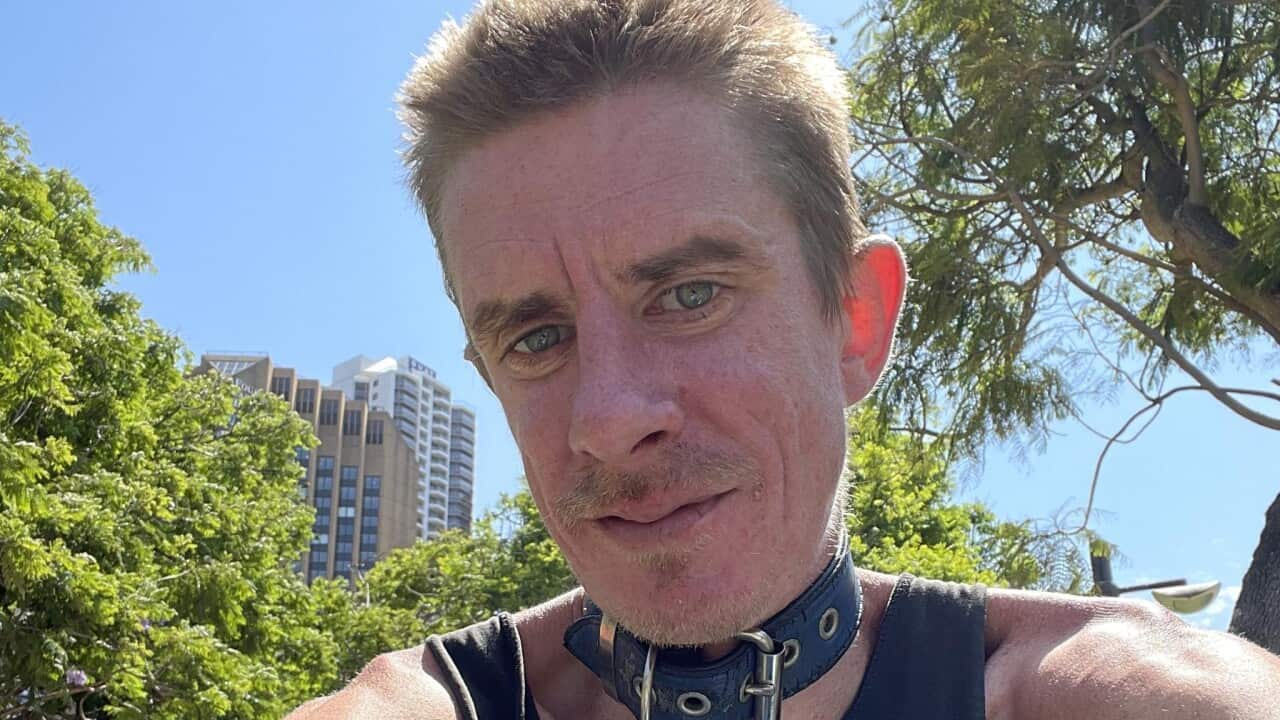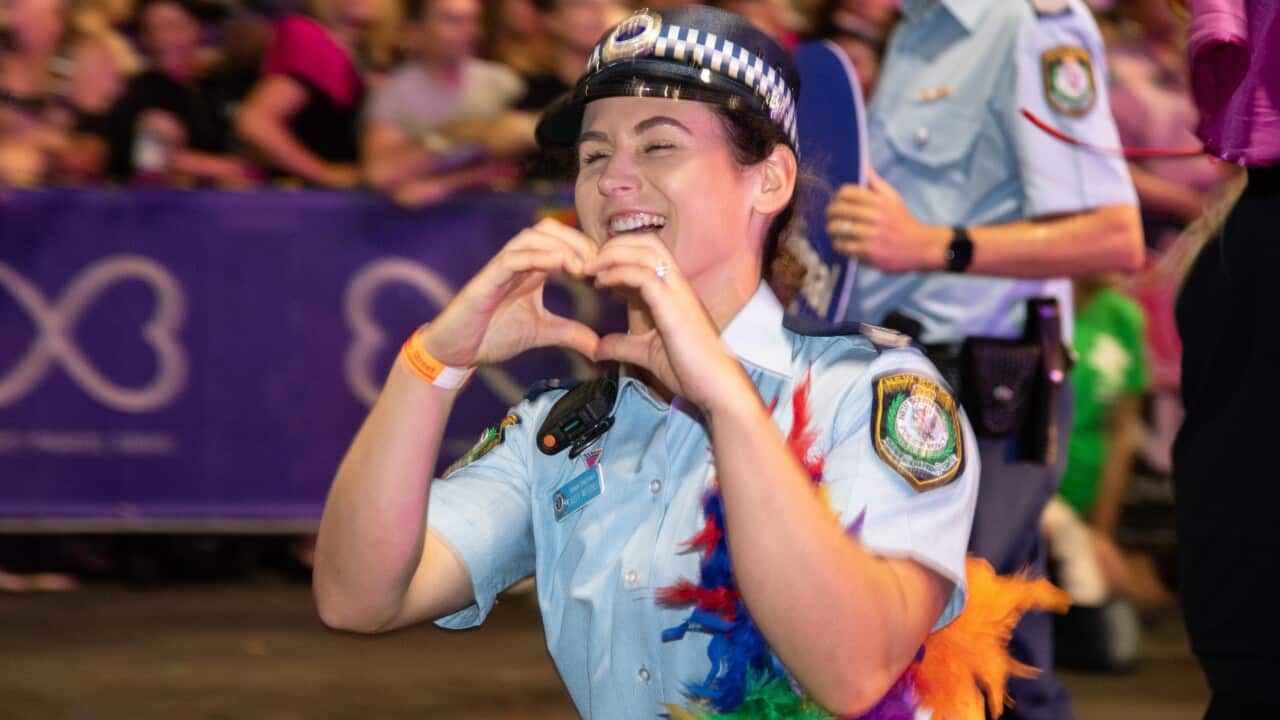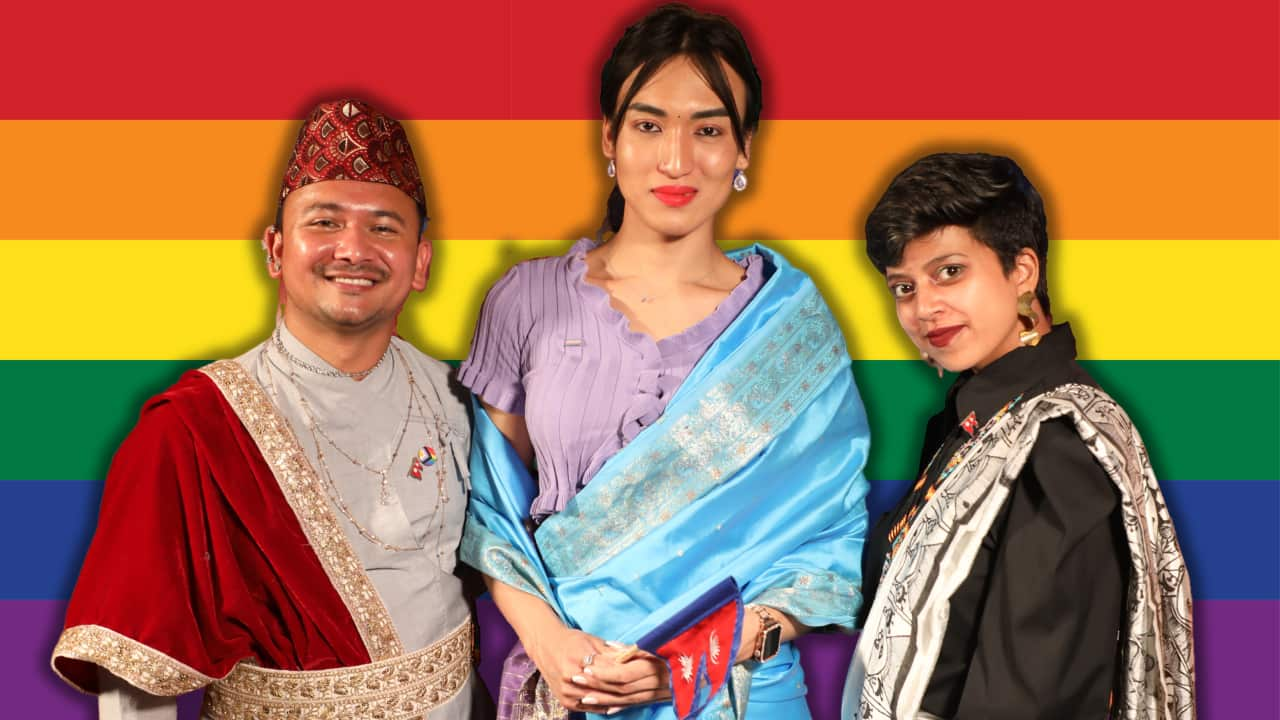For many years Fox Vaughan lived metres away from Taylor Square, a key gay landmark on Sydney's Oxford Street, along the Mardi Gras parade route.
But he never attended the parade — and won't this year, either.
"I'm not a great fan of crowds, but that aside, I take issue with the way over recent years the Mardi Gras board have allowed it to be a commercial circus," he told SBS News.
"I think respect in sponsorship is key — show you're an ally all the time."
He says he believes Mardi Gras also "focuses too much on the G in LGBT".
"We are a very diverse community but I feel the parade especially focuses on gay white men."

Dykes on Bikes lead the Sydney Gay and Lesbian Mardi Gras each year. Source: AAP / Mark Baker
"As a bi guy, I feel erased. Gay guys either fetishise bisexuality or just simply say it doesn't exist and I feel trans people are excluded a lot.
"We don’t come together enough to fight the big issues, such as the very high rates of suicide and domestic violence in the community, and that saddens me."
More than 12,000 people spread over 200 floats are expected to take part in this year's 46th annual Gay and Lesbian Mardi Gras parade.
Tens of thousands more will watch the parade and potentially hundreds of thousands will attend related parties, including parties for transgender people run by the official Mardi Gras organisation.
The organisation describes itself as "a beacon of diversity and inclusion for the world's LGBTQIA+ community".
"Over the years we have proved that, in the face of adversity and persecution, the LGBTQIA+ community can get attention, we can drive debate and we can change opinions, laws, lives, hearts and minds," its website reads.
However, some members of the LGBTIQ+ community are choosing not to attend for a range of personal and political reasons.

Sandy O'Sullivan has marched at Mardi Gras many times in the past but probably won't again. Source: Supplied
They've decided to sit out this year for several reasons; partly because the event is hard to navigate with their disability.
They say Mardi Gras has "a real problem" with queer people of colour feeling unsafe at events, partly because they don't want to march alongside NSW police officers.
"Queer Indigenous people are subject to police and the carceral system at a much higher rate than our non-Indigenous counterparts."
They believe a truth-telling process needs to happen, where police acknowledge and apologise for past violence against the LGBTIQ+ community.
Mardi Gras needs to do more to include and support transgender people, they say.
"It continues to be called the Sydney Lesbian and Gay Mardi Gras and continues to not reference trans people or other queer people."
"We've got great people and allies marching that we work with who support us and who challenge (societal norms) through their very presence. But to just say, 'of course you're included' — it's not enough."
The controversial history of NSW police at Mardi Gras
This week, the NSW police's invitation to march was , following allegations an officer
A deal was later reached between the board and the force that officers would march but not in uniform as they have in years past.
Many in the community feel police should never have been invited to march in the Mardi Gras parade, which they have since 1998.
The first Mardi Gras in 1978 was a protest, coordinated in solidarity with other gay and lesbian groups around the world on the .
That year, police beat and arrested 53 people and newspapers published their names, occupations and addresses.

The 78ers still march annually at Mardi Gras. Source: AAP / Bianca de Marchi
"Obviously, the first one was awful. But now it's completely different. It's huge. It's spectacular, it's glamorous. I mean, some people say it's too commercial but it's a part of the evolution."
She says Mardi Gras was never going to stay the same and it's still important as a "beacon of hope" for young people growing up in conservative environments.
"The objective of creating visibility for the public is still what it is and was about and even more so now. I think it's achieved that original intention of taking up space in a public way."
Inclusive parties
Isa is a queer Sydney DJ who runs parties under the Athletica label.
She thinks Mardi Gras is valuable as a big show of queerness but has always preferred smaller, underground Sydney events.
She says she focuses on creating inclusive and safe environments at events and one of the ways Athletica does this is with 'Safety Angels'.
"They walk around a party, they're paid members of the crew, and they keep an eye out on if anyone's really uncomfortable, if people are acting a bit weird, if someone's feeling sick. I give them a full briefing beforehand, and I have posters up around the party .... with a number people can call."
"There's obviously ground rules, but having a really practical action plan that people can actually look to and be like, 'Oh, this is what I can do if I feel this' has been really good in the past."
Space for quiet queers
Several people SBS News spoke to pointed to the need for more activities for LGBTIQ+ people who simply don't like partying.

Tim Abbott is a non-drinker and said this can make it harder to enjoy Mardi Gras. Source: Instagram
"I need to preface that I love the Mardi Gras organisation and the parade. I think it holds a huge significance for the entire community and certainly did for me when I was younger, particularly when coming out.," he says.
"But as I've gotten older, what happens beyond the parade doesn't match up with how I enjoy myself or celebrate my own pride. And that's not to shame anyone who does want to do that."
Mardi Gras afterparties can feel "isolating", Abbott says, as he has been a non-drinker for five years.
"I think there's a need for a sense of community that isn't surrounded by partying."
He says he hopes to return to Mardi Gras, which he has attended 10 years in a row.











